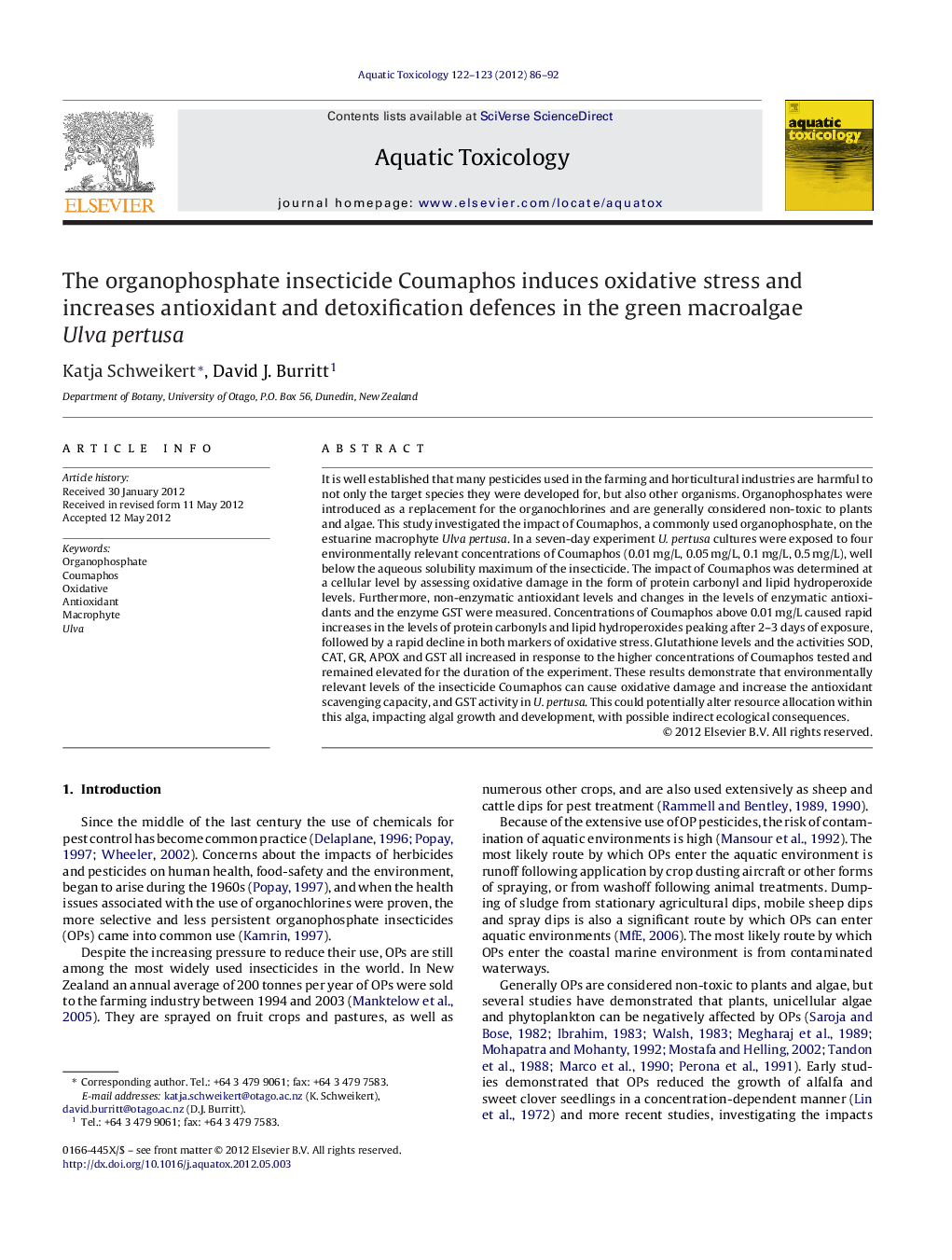| Article ID | Journal | Published Year | Pages | File Type |
|---|---|---|---|---|
| 4529646 | Aquatic Toxicology | 2012 | 7 Pages |
It is well established that many pesticides used in the farming and horticultural industries are harmful to not only the target species they were developed for, but also other organisms. Organophosphates were introduced as a replacement for the organochlorines and are generally considered non-toxic to plants and algae. This study investigated the impact of Coumaphos, a commonly used organophosphate, on the estuarine macrophyte Ulva pertusa. In a seven-day experiment U. pertusa cultures were exposed to four environmentally relevant concentrations of Coumaphos (0.01 mg/L, 0.05 mg/L, 0.1 mg/L, 0.5 mg/L), well below the aqueous solubility maximum of the insecticide. The impact of Coumaphos was determined at a cellular level by assessing oxidative damage in the form of protein carbonyl and lipid hydroperoxide levels. Furthermore, non-enzymatic antioxidant levels and changes in the levels of enzymatic antioxidants and the enzyme GST were measured. Concentrations of Coumaphos above 0.01 mg/L caused rapid increases in the levels of protein carbonyls and lipid hydroperoxides peaking after 2–3 days of exposure, followed by a rapid decline in both markers of oxidative stress. Glutathione levels and the activities SOD, CAT, GR, APOX and GST all increased in response to the higher concentrations of Coumaphos tested and remained elevated for the duration of the experiment. These results demonstrate that environmentally relevant levels of the insecticide Coumaphos can cause oxidative damage and increase the antioxidant scavenging capacity, and GST activity in U. pertusa. This could potentially alter resource allocation within this alga, impacting algal growth and development, with possible indirect ecological consequences.
► The impact of the organophosphate insecticide Coumaphos on the green macroalgae Ulva pertusa was determined at the cellular level by assessing oxidative damage. ► Coumaphos causes oxidative stress in the green macroalgae U. pertusa. ► U. pertusa recovers from Coumaphos induced oxidative stress by increasing cellular antioxidant scavenging capacity and GST activity. ► Coumaphos could potentially have a negative impact on coastal ecosystems by reducing algal growth and development.
